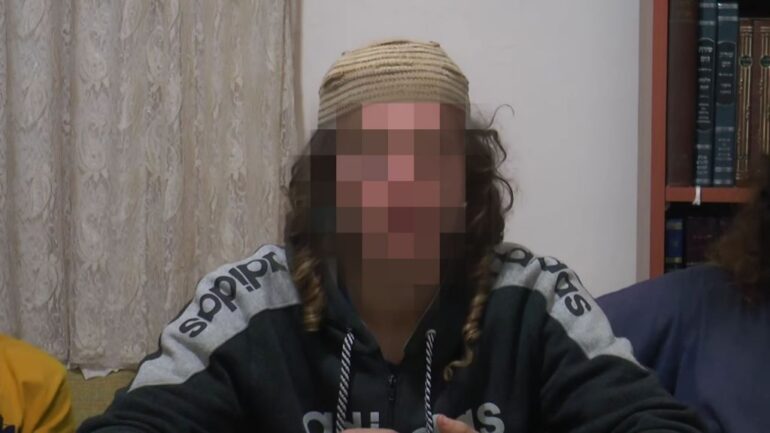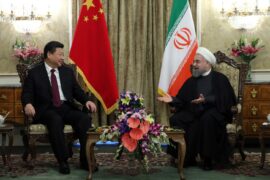The Lod Central District Court threw out the confessions of a 17-year-old Jewish boy this week on grounds that it had been coerced by Shabak agents under threats of violence.
The minor, who had been charged with membership in a terrorist organization and various incidents of vandalism, had been threatened with violence and rape by Shabak agents who posed as fellow inmates in a fake detention center.
The boy had been arrested in late 2015, after 18-month-old Ali Dawabsheh and his parents were killed in a fire set by arsonists to their home in the Palestinian community of Duma.
Several West Bank Jewish boys, mostly minors associated with the “hilltop youth” subculture, were held under administrative detention by the Shabak for several months while the agency attempted to build a case against them. Despite finding no evidence against the suspects, desperate agents under pressure from the political establishment physically tortured many of the boys during interrogation sessions.
This particular minor was held at a fake prison in the coastal city of Akko and placed in a cell together with undercover operatives posing as hardened criminals.
The court found that while incarcerated, the youth was subject to threats by his undercover cellmates, who had accused him of being an informant and demanded he tell them of his crimes so that if he were to snitch on them, they would also have incriminating information against him.
The court also found that one of the undercover agents intimidated the minor into giving him half his meal on the night following a Jewish national fast day. On another occasion, the boy was prevented from wrapping t’fillin.
In another tactic used to frighten the boy, one of his undercover cellmates often called him a “girl” and threaten to rape him. At one point, drugs were concealed in his bed by his cellmates, who ordered him to stay silent. They later accused him of informing on them.
The court ruled that the methods used to extract confessions from the 17-year-old were illegal. The judge reprimanded the Shabak and wrote that considering the threats and intimidation he felt, the boy had no free choice when confessing to the crimes.
The boy’s attorney praised the court’s decision, saying his client had been denied his basic rights.
“This is an important day for Israeli democracy,” he said. “The time has come for the Shabak and the police to know that the ‘hilltop youth’ also have basic rights.”
“All red lines have been crossed in this investigation. I’m glad the court accepted our claim and disqualified the confession.”
While justice must obviously be obtained for the Dawabsheh family, there must also be transparency and accountability when it comes to the interrogation methods of our security agencies. In a democratic society, administrative detention and torture cannot be go-to methods for solving crimes, no matter how heinous.
Aside from a potentially urgent “ticking bomb” situation that demands extra-legal interrogation techniques to save lives in real time, these methods of investigation are completely indefensible – especially when used against minors – and undermine Israel’s claim to hold democratic values.
A number of political figures, most notably Naftali Bennett (HaYamin HeḤadash), had for a long time tried to defend the Shabak, attacking as hypocrites those who support aggressive interrogation measures for Palestinian prisoners but oppose them when it comes to Jews suspected of political violence.
Israel’s national-religious sector – to which the underage defendant belongs – should ask itself how turning a blind eye towards these interrogation methods when directed against Palestinians has ultimately led to them being used against its own youth, perhaps a clear example of how the occupation has corrupted Israeli society.
The Shabak’s methods for combatting Palestinian political violence has not decreased support for such violence within Palestinian society. In fact, the opposite can be said. And the same would likely hold true for Israeli society.
The disparity between the treatment of Jewish and Palestinian prisoners by our security forces should be corrected not by lowering the moral standard for how we treat Jewish prisoners but by raising the moral standard for how we treat Palestinians.





